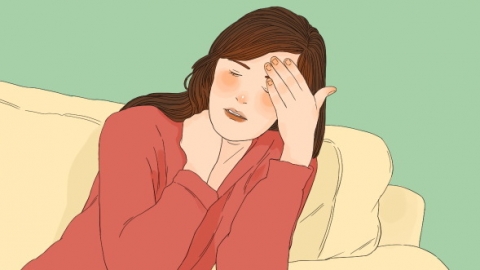Why do people with anxiety feel worse when the weather is hot?
Generally, patients with anxiety disorder may feel unwell in hot weather due to increased thermoregulatory load, autonomic nervous system dysfunction, neurasthenia, panic disorder, hyperthyroidism, or other causes. If discomfort occurs, it is recommended to seek timely medical evaluation and treatment at a正规 hospital. Detailed analysis is as follows:
1. Increased Thermoregulatory Load
When the weather is hot, the body needs to dissipate heat through sweating. Patients with anxiety disorder already have an overactive sympathetic nervous system, so the added burden on temperature regulation can easily trigger discomfort such as irritability and palpitations. Move promptly to a cool place, use a wet towel to wipe down the body for cooling, and drink warm water in small amounts frequently to rehydrate.

2. Autonomic Nervous System Dysfunction
Heat stimulation further disrupts the balance of the autonomic nervous system. In patients with anxiety disorder, whose neural function is already impaired, this imbalance worsens symptoms such as dizziness, hand tremors, and chest tightness. Keep indoor areas well-ventilated, use fans or air conditioning to regulate room temperature, and practice deep breathing or meditation to calm emotions.
3. Neurasthenia
Anxiety disorders are often accompanied by neurasthenia. Under high temperatures, brain nerves become easily fatigued and abnormally overexcited, worsening insomnia and irritability. Under medical guidance, medications such as Oryzanol tablets, Vitamin B1 tablets, or Anshen Bunao Liquid may be taken. Avoid prolonged exposure to high temperatures, especially in the afternoon.
4. Panic Disorder
Physical discomfort caused by heat may act as a trigger for panic attacks, leading to intense fear, shortness of breath, and other symptoms. Under medical supervision, medications such as Sertraline Hydrochloride tablets, Paroxetine tablets, or Alprazolam tablets may be prescribed. Carry cooling and heat-relief items to prevent sudden episodes of discomfort.
5. Hyperthyroidism
Some patients with anxiety disorder also have coexisting hyperthyroidism. High temperatures accelerate metabolism, and excessive secretion of thyroid hormones increases nervous system excitability, exacerbating anxiety and physical discomfort. Under medical guidance, medications such as Methimazole tablets, Propylthiouracil tablets, or Propranolol tablets may be used. Avoid spicy and stimulating foods.
In daily life, maintain regular sleep patterns and avoid staying up late; reduce outdoor activities during peak heat hours and take sun protection measures; eat a light diet and avoid spicy or irritating foods; engage in moderate exercise regularly to improve heat tolerance; and schedule regular follow-up visits to monitor disease progression.




